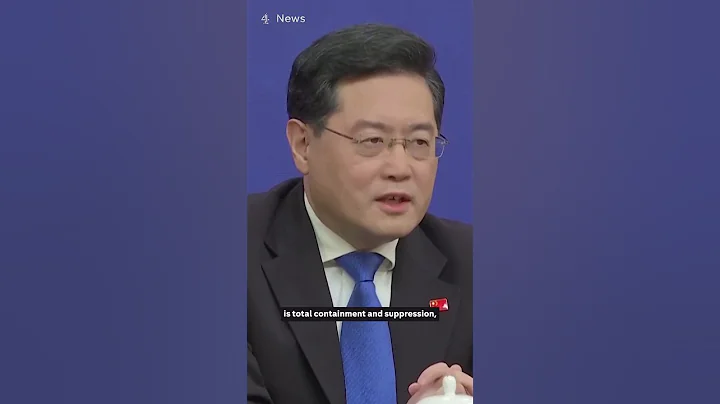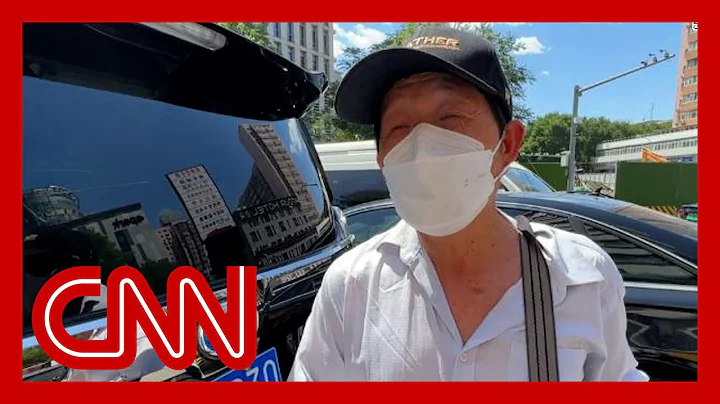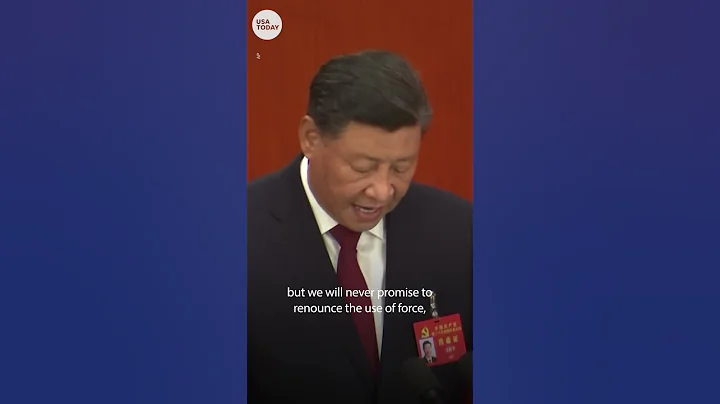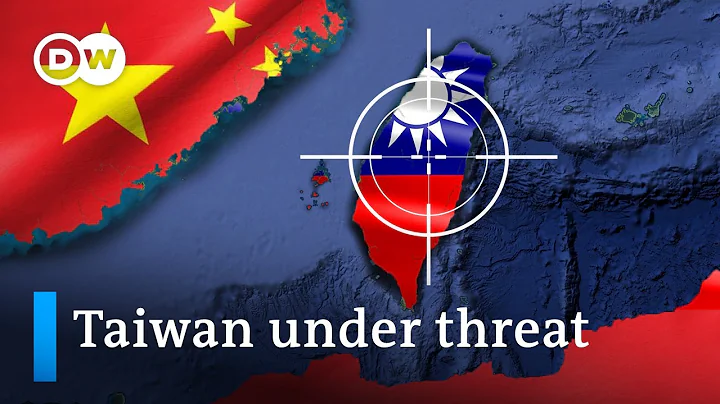Source: Written by Bu Yi Dao/Zanpakutō Hu Yida
In the next 10 days, the United States will take one wave after another in its actions against China.
On Taiwan-related issues, which are very sensitive issues in China-U.S. relations, the United States will next connect with Taiwan from three important aspects: strategic interaction, military security, and economic, trade and technology.
Especially in terms of military security, this time the United States will combine the experience of the Russia-Ukraine conflict and issue a "weapons procurement list" to Taiwan, and the goal is very clear, which is to rack its brains in an attempt to "use various methods to prevent the People's Liberation Army from "Landing operations against Taiwan" and using force to undermine reunification.
In addition, the Biden administration also plans to promote global infrastructure construction projects that hedge the "Belt and Road Initiative" at the upcoming G7 summit. It seems very targeted.
However, Biden After falling down while riding his bicycle, the US president revealed that he was about to communicate with China and that the decision to cancel tariffs on some Chinese goods was under discussion. There is news that this "major decision" since Trump launched a trade attack on China is close to being reached.
Because the record-breaking inflation levels and rising prices in the United States have made it unbearable for the common people.
On the one hand, it wants to "use Taiwan to control China", and on the other hand, it wants to solve the domestic inflation crisis in the United States through China. What is the United States' plan?
html On the 19th, the Chinese Ministry of Foreign Affairs website rarely used 39,000 words to point out various fallacies in the United States’ perception of China as well as the truth. It has effectively countered the various smearing and attacking remarks against China that have been spread in Washington recently. Thegame has entered a critical stage.
 1
1
Just a few days after the "Xianghui" ended, the United States began to accelerate the pace of collusion with Taiwan.
html On June 20, the "Government-Military Dialogue" between the United States and Taiwan will be held in Annapolis, the state capital of Maryland.Taiwanese media announced that the Democratic Progressive Party authorities sent "National Security Council Secretary-General" Gu Lixiong to lead a team to the United States, and Taiwan and the United States will hold high-level official discussions on "how to counter the military threat from mainland China."

Although the Democratic Progressive Party authorities said that "no comment will be made based on the tacit agreement between Taiwan and the United States," the "Nikkei Asia" magazine website has previously revealed some details related to this dialogue. The
report quoted sources as saying that the dialogue will be held in accordance with the "Monterey Talks" model between the United States and Taiwan. The "Monterey Talks" are an important military and security meeting between the United States and Taiwan. They originated from the establishment of communication channels between the United States and Taiwan on security strategic issues after the Taiwan Strait crisis broke out in the 1990s.
reported that "weapons supply" will be the main topic of this meeting, because the United States wants to give priority to selling weapons to Taiwan that can "most effectively prevent potential landing actions on the mainland."
Moreover, the United States is said to have made a list of weapons and systems that Taiwan is recommended to purchase. There are about 20 items, including anti-ship missiles , air defense systems , and intelligence collection that can detect the movements of opponents and issue early warnings. system.
Some analysts believe that the content of this list means a change in the US arms sales policy towards Taiwan, with an increasing emphasis on prioritizing "asymmetric capabilities".

This attitude of the United States has become clearer after the conflict between Russia and Ukraine. The Biden administration has recently canceled or rejected Taiwan's arms purchase requests on many occasions on the grounds that it does not meet "asymmetric combat capabilities."
The so-called "asymmetric combat power" is a combat strategy tailored by the United States for Taiwan to enhance Taiwan's "independent defense capabilities." Washington has been trying to persuade the Democratic Progressive Party authorities to purchase a large number of mobile and lethal weapons in order to "use small to achieve greater results" in response to the People's Liberation Army's landing operations. The intention of
is obviously extremely vicious.
In recent years, some people in the United States have thought of various ways to enhance Taiwan's "asymmetric combat power." Some people encourage Taiwan to engage in "scorched earth" and "street fighting" with the mainland, and some even suggest that "when the mainland attacks Taiwan, the US military should destroy Taiwan's infrastructure to save Taiwan."
This is a typical example of treating the Taiwanese people as cannon fodder, and only wants to wipe out the value of Taiwan as a "chess piece in the strategic competition against China" of the United States.
In addition to encouraging the DPP to further "reject reunification with force" in the political and military aspects, at the economic and trade level, the United States has also offered Taiwan a new starting point for "relying on the United States and seeking independence" - the "U.S.-Taiwan 21st Century Trade Initiative" , and held the first meeting of the initiative in Washington on June 27.
When the initiative was launched, Taiwan's "Executive Yuan" announced in a high-profile manner that its "complete structure and extensive content" could "serve as a road map to promote trade agreements." It also said that Taiwan and the United States would be committed to starting negotiations and reaching "high standards and Economically significant trade agreement.” At that time, some green media boasted that this was promoted as the "Mini IPEF (Indo-Pacific Economic Framework)" and "shows a great leap forward in Taiwan's status."
U.S. Deputy Trade Representative Biachi also said that this new initiative is "likely" to have results faster than the " Indo-Pacific Economic Framework " between the United States and 13 countries.
But anyone with a discerning eye can see that although the "Taiwan-U.S. 21st Century Trade Initiative" is highly praised, judging from the time when it was announced, this is after the Gulf was excluded from the "Indo-Pacific Economic Framework" , a "pacifier" stuffed into the mouth.
Taiwan's "Executive Yuan" Political Affairs Councilor Deng Zhenzhong recently told Taiwanese media that the goal of the meeting on the 27th of this month is to sign a "trade agreement" with the United States, but "the signing schedule is difficult to control." After all, "it is not easy for anyone to conduct trade negotiations with the United States." ".

He said that the holding of the first meeting does not mean that the United States and Taiwan have entered the substantive negotiation stage. Taiwan still needs some time to prepare, and the relevant consultation procedures on the United States will not have results until mid-July.
It seems that some people in Wanwan also know it well. The wishes are beautiful, but the reality is very skinny. What awaits them is likely to be nothing but joy.
While Washington is playing the "Taiwan card", it is also setting its sights on the "One Belt, One Road" initiative.
White House National Security Advisor Sullivan said at an event hosted by the Center for a New American Security on the 16th that Biden will launch a global infrastructure initiative at the G7 summit at the end of the month as an "alternative to China." Coping with China’s influence in the world, especially in the “Indo-Pacific region”.

Sullivan revealed that the new initiative will cover global infrastructure, physical health and digital infrastructure. The United States and G7 member states are expected to invest hundreds of billions of dollars, which will create huge dividends for the entire "Indo-Pacific region".
Although Sullivan did not directly criticize China by name, it is generally believed that the so-called "alternatives outside China" have obvious implications for the "One Belt, One Road" initiative.
The specific content of this global infrastructure initiative is not yet known, but it is worth mentioning that this is not the first time that Biden wants to bring G7 countries together to engage in infrastructure initiatives to counter China's "One Belt, One Road" initiative. On June 13, 2021, at the G7 Summit held in the United Kingdom, the leaders of the seven countries agreed to launch the "Build Back a Better World" initiative led by the United States to provide low- and middle-income countries with construction infrastructure that is different from the "Belt and Road Initiative" .
A year later, many of the program's items are still languishing in the U.S. Senate.
 2
2
Interestingly, while the Biden administration is desperately manipulating the "Taiwan" issue and forming gangs to form "small groups" to contain China, it is once again releasing the message of "cutting tariffs on China."
The US news website Axios recently quoted people familiar with the matter as saying that Biden intends to remove some products from the Chinese tariff list of former President Trump's administration, and will make relevant announcements as early as this month.
On the 18th local time, Biden said in an interview after riding a bicycle near his beach house in Delaware that "I am in the process of making a decision" regarding the relaxation of tariffs on China. Earlier that day, While riding his bicycle, Biden "got stuck" in his leg braces and overturned on the spot, but was not injured.

However, judging from recent reports, there are still differences within the Biden administration on whether to adjust tariffs on China:
Treasury Secretary Yellen and Commerce Secretary Raimondo advocate cutting some tariffs to combat the severe domestic epidemic in the United States. inflation ; Trade Representative Dai Qi believes that the issue of tariffs on China should be "examined under the US-China grand strategy" and does not support the cancellation of the increased tariffs on China.
However, some analysts believe that even if Biden finally makes the decision to relax tariffs on China, it will be difficult to regard it as a proactive display of goodwill towards China.
On the contrary, the United States is now forced by the "highest inflation in 40 years". If it does not adjust its tariffs on China, it may not be able to explain to the voters.
According to U.S. Bureau of Labor Statistics data, the U.S. consumer price index (CPI) rose 8.6% year-on-year in May. This is not only a new high since December 1981, but also the sixth consecutive month that the US CPI has exceeded 7%.
Among them, the prices of housing, gasoline and food, which are closely related to people's lives, have increased the most. The energy price index increased by 34.6% year-on-year in May, a new high since September 2005; food prices increased by 10.1% year-on-year, a new high since March 1981.
In the words of Biden's "political rival", Senator Hawley and many other Republican congressmen, this US government has "really changed American life", but it is just the "worst change":
Refreshing the past 40 years Newly high inflation rates, severe shortages of infant formula, gas prices soaring to $5 per gallon, and a historic crime wave are all making the lives of the American people "worse."
Even though the Federal Reserve announced the "largest interest rate hike in 30 years" on June 15, announcing that it would raise the policy interest rate by 75 basis points, inflation is still "high and difficult to abate." More and more analysts believe that there is a high probability of "stagflation" in the U.S. economy, and it will not be easy to achieve a "soft landing."
Affected by inflation, the three major U.S. stock indexes have plunged one after another recently.
html On June 13, the Nasdaq led the way down 4.68%, hitting its lowest closing price since October 2020. The S&P 500 index fell nearly 4%, a drop of more than 21% from the high point in January this year.The positive sentiment on the market caused by the Federal Reserve's interest rate hike only lasted less than half a trading day. On June 16, the S&P 500 Index fell 3.3%, and the Dow Jones Index fell 2.4%, both hitting their lowest closing levels since December 2020.
Recently, multiple U.S. media polls have shown that as inflation continues to rise and concerns about economic recession occur, U.S. President Biden's approval rating has reached a new low.
A poll jointly conducted by USA Today and Suffolk University showed that 47% of the people strongly disapproved of Biden's work, while 39% approved of his performance. More than 70% of the people believe that the United States is going in the wrong direction.
Obviously, if inflation is no longer suppressed, for Biden, the Democratic Party will most likely be in jeopardy in the mid-term elections to be held in November.
Under this circumstance, canceling tariffs on China is becoming the best choice for the Biden administration to deal with inflation.
According to a recent research report by Peterson Institute for International Economics , if the additional tariffs are completely eliminated, it can reduce the US CPI by 1.3 percentage points, which is equivalent to US$797 for each family.
Even if this expected decrease is still "not enough" for today's inflation in the United States, even Biden administration officials have to admit that they have "almost no other options."
 3
3
Wang Shushen, director of the Taiwan-U.S. Relations Research Office of the Taiwan Institute of the Chinese Academy of Social Sciences, told "Buyi Dao" that since the outbreak of the Russia-Ukraine conflict on February 24, the security issue in the Taiwan Strait has been deliberately exaggerated and hyped by the United States and the West. In addition to traditional arms sales issues, this meeting will also discuss issues such as "actual combat training" in an attempt to demonstrate "closer defense cooperation between the United States and Taiwan."
Since this year, the Biden administration has declared that it pursues the "one-China policy" and "does not support Taiwan independence," and that it will continue to maintain "strategic ambiguity." However, it has obviously not changed its policy of "supporting Taiwan and resisting China" in political, military, and economic aspects. Even the strategy is clearer.
On the one hand, Taiwan’s defense capabilities will be enhanced in terms of military security. In recent years, the Democratic Progressive Party authorities have been working hard to develop a "heavy-layered deterrence strategy" and "asymmetric combat power" in an attempt to turn Taiwan into a so-called "porcupine." The new concept of "enhanced deterrence" is one of the ten major plans for the United States' "Indo-Pacific Operations" announced by the Biden administration in the next one to two years, including strengthening military deterrence against China in the Taiwan Strait and the first island chain.
The conflict between Russia and Ukraine is dragging on. Ukraine's tactics and weapons assistance from the United States and the West have further strengthened the Taiwan military's fantasy of implementing an "asymmetric" defense concept. The United States continues to normalize arms sales to Taiwan and tends to sell a large amount of weapons and equipment that are cost-effective and can make a big difference with a small amount.
Moreover, the U.S. Congress is also preparing a draft legislation that proposes to treat Taiwan as a "major non-NATO ally" and provide Taiwan with a total of billions of dollars in military financing for U.S. military purchases.
Regarding the "Monterey Talks" between the United States and Taiwan, according to the "Nikkei Asia" magazine website, the United States has prepared a list of weapons that it hopes Taiwan will purchase first. Taiwan media said that the U.S. Marine Corps has begun to adjust its "Strategy and Tactics in the Indo-Pacific" and positioned it as "Stand-In Forces" to accelerate the formation of rapid deployment capabilities in the first island chain. Taiwan may discuss this with the United States. Cooperation.
On the other hand, it strengthens its economic influence and control over Taiwan. The United States is Taiwan's second largest trading partner, and Taiwan is the United States' ninth largest trading partner. In 2021, the trade volume between Taiwan and the United States will be approximately US$104.8 billion, a year-on-year increase of more than 26%. However, the trade volume between Taiwan and the mainland exceeds US$320 billion. Cross-strait trade accounts for 33% of Taiwan’s foreign trade. The mainland has always been Taiwan’s largest export market and largest trade. Source of surplus.
Today, Washington has repeatedly emphasized to relevant parties in Taiwan that "economic independence can maintain political independence" and supports Taiwan in reducing its economic dependence on mainland China. During the Trump era, the economic security policy was implemented to extremely suppress and contain China's technological innovation and development, including the direct use of export controls and long-arm jurisdiction to restrict cooperation between Taiwan's high-tech industries and the mainland, causing TSMC to stop providing OEM services to Huawei. chip.
Regarding the "21st Century Trade Initiative", the DPP authorities undoubtedly hope to take the opportunity to upgrade the "official relationship" with the United States, make up for the lack of being a member of the "Indo-Pacific Economic Framework", and even treat the United States as a foreign economic and trade partner. A breakthrough in the agreement.
And the Biden administration has launched negotiations on this initiative, with the purpose of using the US containment strategy against China as a guide to influence and control the DPP authorities to "far away from China and be pro-US" in terms of economic and trade policies and rules, rather than in China. In terms of substantive economic and trade interests, it will benefit Taiwan. Therefore, in economic and trade negotiations, the DPP authorities will be more passive and subordinate to the strategic needs of the United States, and the substantive dividends expected by the island society will eventually come to nothing.
Wang Shushen said that Taiwan is the core and most sensitive issue in Sino-US relations. Since the Biden administration came to power, China has made clear to the United States its determination and will to firmly safeguard national sovereignty and territorial integrity on many occasions. The Biden team should feel this.
Subverting Sino-US relations and creating direct conflicts is not in line with the political interests of the current Biden administration and the Democratic Party, so its Taiwan policy will still have certain boundaries.
The Democratic Progressive Party authorities' "pro-US and anti-China" policy and the US's "support of Taiwan and resistance to China" rely on and use each other. We should accurately grasp the direction of their strategies, oppose the false and empty "one-China policy", and vigorously oppose The substantive relationship between the United States and Taiwan has been upgraded.
Regarding the Biden administration’s plan to promote global infrastructure construction projects at the G7 summit and hedge against the “One Belt, One Road” initiative, an expert on American issues told “Bi Yi Dao” that the Biden administration really wants to use infrastructure construction as a “grasp” "hand" to curb China's global cooperation and expand the United States' economic opportunities in this area.
However, judging from the past period of time, the Biden administration has been more verbal. Although some plans have taken shape, how to implement them is still a mess and no clue can be found. Now the United States wants to package the "Indo-Pacific Economic Framework" and economic cooperation plans in other regions into a global infrastructure project, which is actually very difficult.
On the issue of reducing domestic inflation in the United States, Biden does realize that although he is unwilling to exempt some Chinese goods from high tariffs, because such an approach will definitely be criticized and criticized wildly by the Republican Party before the mid-term elections. , but there seems to be no other option in the Biden administration’s “toolbox”.
column editor: Gu Wanquan Text editor: Li Linwei Source of title picture: Xinhua News Agency Picture editor: Da Xi
source: Author: Bu Yi Dao Bu Dao Ke





















